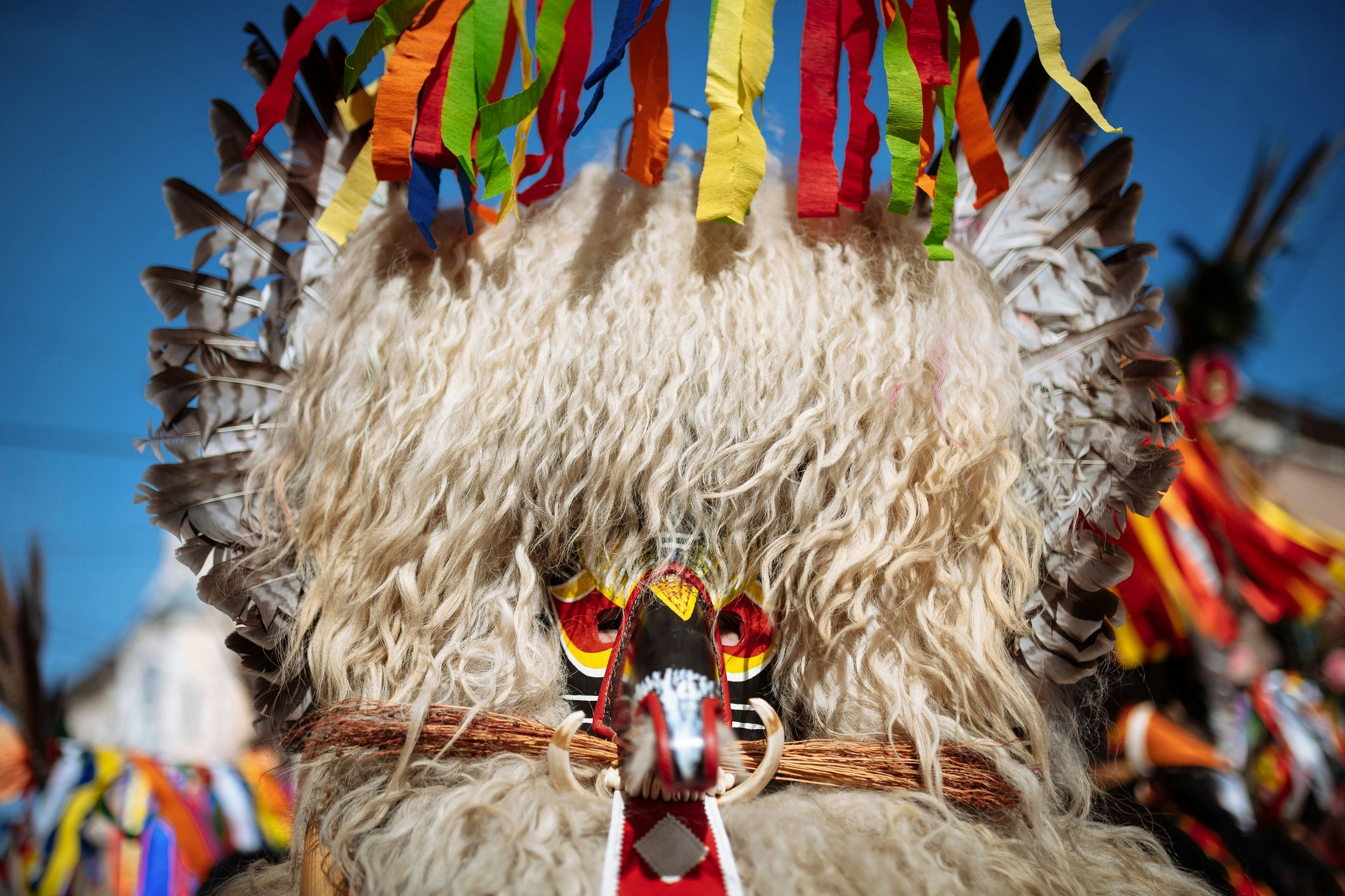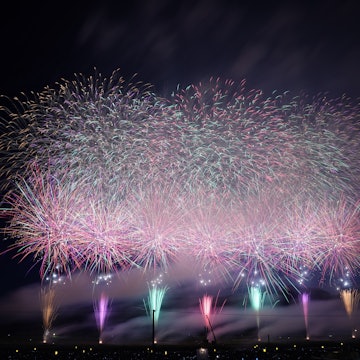
Kurentovanje: the wildest Mardi Gras celebration you've never heard of
Dec 23, 2019 • 3 min read

A close-up of the kurent mask in the parade © JURE MAKOVEC / Getty Images
There are things we tend to associate with Europe: perhaps sipping espresso at a pavement cafe or skiing in the Alps. A parade of people dressed in giant furry suits topped with bull horns, with red leather faces, wearing a belt of cowbells and carrying a mace spiked with hedgehog spines, is not one of them. But such parades of people dressed as monsters can be found throughout Europe, particularly in the mountainous belt that stretches from the Pyrenees through the Alps. In Slovenia, this Mardi Gras parade is known as Kurentovanje.

Where and when
The Kurentovanje festival is held every February in Slovenia, in the ten days leading to Ash Wednesday (the main parade is usually held on the Sunday nearest to Ash Wednesday). The dates for the 2020 celebration are 15–25 February, and the heartland of the event is the town of Ptuj (pronounced p-too-ee). Ptuj is an elegant medieval town crowned by a castle and bound by the river Drava. It was once an important ancient Roman town, Poetovio, a stop on the trade route from the east to Rome.
History of Kurentovanje
The Kurentovanje ritual is tribal – it's likely to date back to the time when Celtic culture spread across the continent of Europe. This is evident from the fact that traditions surprisingly like Kurentovanje – rites of spring in which people dress as hairy demons – can be found in mountainous settlements across Europe, from the Basque Country on the Atlantic Coast through Germany, Switzerland, alpine Italy, Austria and Slovenia.

Benevolent demons on parade
A visit to the Kurentovanje parade in Ptuj is one of the most surreal activities one can experience in Slovenia. The parade begins with the distant sound of bullwhips rattling the chilly air. Expecting something monstrous, you might be surprised that the people wielding these whips are dressed like farmers and wear bouquets of flowers in their hats – not so frightening after all. Their role is to clear the path for the kurenti and, with them, to frighten away the winter and invite in the spring.
Then come the monsters. Kurenti are benevolent demons, as their role is to chase winter and bring in the spring. But winter clearly takes some scaring, because they are certainly intimidating. The costumes begin with sheepskin suits, belted with cow bells, to make maximum noise when jumping around and dancing (winter, it seems, likes things quiet). Enormous oversized helmets are likewise made of sheepskin. Those inside them appear huge, and the coloured streamers and bull horns mounted on the helmets are a combination of festive and frightening.
Dance, drink and welcome spring
The kurenti come in droves, filling the streets. Their goal is to make a lot of noise, and they are cheered by the crowd lining the street. There is much dancing, and the consumption of homemade schnapps and fist-sized krofi, donuts filled with warm apricot marmalade. It is a sight to behold, and well worth a journey to ring in the spring.
Visiting Ptuj during Kurentovanje
Book well ahead if you’d like to stay in Ptuj during the festival. For inexpensive, hostel-style rooms, check out Muzikafe, while the traditional, elegant grand hotel in town is Hotel Mitra. While in Ptuj, be sure to visit the beautiful castle above the city, which has an excellent museum, including rooms on the history and ethnography of Kurentovanje. Participation in the parade is generally reserved for locals who own an expensive and unwieldy kurent costume. If you are interested in participating, you can contact the local Tourist Board to see if this is possible, though generally speaking this is a spectacle to watch (though you’re welcome to dance along, drink schnapps and eat donuts to your heart’s content).
You might also like:
Six reasons to visit Slovenia, a gem at the heart of Europe
Winter sports in Slovenia's Julian Alps
A perfect weekend in Ljubljana















